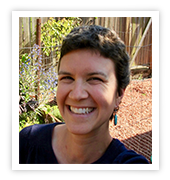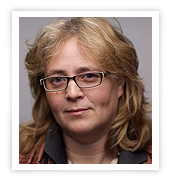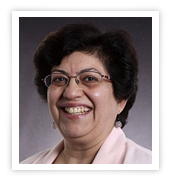Faculty
Lance Bennett
Professor, Department of Political Science
PhD, Political Science
Yale University, 1974
W. Lance Bennett is Professor of Political Science, Ruddick C. Lawrence Professor of Communication and the Director of the Center for Communication and Civic Engagement. He works primarily in the area of media and politics and has contributed to the literature of political psychology, communication theory, and culture. Bennett has lectured internationally on the importance of media and information systems in civic life. He is the author or editor of ten books and his research has been supported by the National Science Foundation, Ford Foundation, Social Science Research Council, Spencer Foundation, Kellogg Foundation, MacArthur Foundation, Pew Charitable Trusts, Annenberg Policy Foundation, Belgian Science Policy Foundation, The MacArthur Foundation, the Fulbright Commission, and the Surdna Foundation.
Recent Publications
Bennett, Lance and Alexandra Segerberg. 2013. The Logic of Connective Action: Digital Media and the Personalization of Contentious Politics. Cambridge: Cambridge University Press.
Bennett, Lance. Forthcoming. “Press-Government Relations in A Changing Media Environment.” in The Oxford Handbook of Political Communication, edited by Kate Kenski and Kathleen Hall Jamieson. Oxford: Oxford University Press.
Email: lbennett AT u.washington.edu
Website
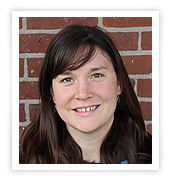
Christine Biermann
Assistant Professor, Department of Geography
PhD, Geography
Ohio State University, 2014
Christine Biermann is Assistant Professor of Geography at the University of Washington. As a nature-society geographer, her major areas of research concern: (1) the political ecology of environmental restoration, (2) the relationships between race, science, and the environment, and (3) social and ecological drivers of forest change.
Recent Publications
Biermann, Christine, and Becky Mansfield. 2014. “Biodiversity, purity, and death: conservation biology as biopolitics.” Environment and Planning D: Society and Space 32(2): 257-273.
Biermann, Christine. 2014. “Not quite American chestnuts: engaging non-modernist epistemologies in nature-society research.” ACME: An International E-Journal for Critical Geographies. Forthcoming.
Email: biermc AT u.washington.edu
Website
Shannon Cram
Assistant Professor, School of Interdisciplinary Arts and Sciences
University of Washington Bothell
PhD, Geography
University of California, Berkeley, 2015
Shannon Cram is an assistant professor of Environmental Studies and Science and Technology Studies at the University of Washington Bothell, where she is also the faculty coordinator for the Science, Technology, and Society program. Her work examines the politics of environmental remediation, especially as it relates to sites within the U.S. nuclear weapons complex. Dr. Cram’s current book project, Exposure Scenario: Nuclear Life and the Politics of Impossibility, examines cleanup at Washington State’s Hanford Nuclear Reservation. She represents University of Washington on the Hanford Advisory Board, a multi-stakeholder body that develops policy advice and recommendations for the U.S. Department of Energy, Environmental Protection Agency, and Washington Department of Ecology.
Recent Publications
Cram, Shannon. 2015. Living in Dose: Nuclear Work and the Politics of Permissible Exposure. Public Culture 28 (3 80): 519-539.
Cram, Shannon. 2015. Wild and Scenic Wasteland: Conservation Politics in the Nuclear Wilderness.Environmental Humanities 7: 89-105.
Cram, Shannon. 2015. Becoming Jane: The Making and Unmaking of Hanford’s Nuclear Body. Environment and Planning D: Society and Space 33 (5): 796-812.
Email: scram AT uw.edu
Website
Sara Curran
Professor, Jackson School of International Studies & Evans School of Public Affairs
PhD, Sociology
University of North Carolina, Chapel Hill, 1994
Sara Curran is Associate Professor at the Jackson School and the Evans School. She serves as Chair of International Studies and Director of the Center for Global Studies. Her research interests on environmental governance focus on the reciprocal relationship between population dynamics and environmental conditions. She is working on several papers related to how climate variability affects patterns of rural migration in Thailand. And, in several earlier works she has examined the intersection of population dynamics, common property institutions, poverty, and environmental conditions.
Recent Publications
Jaworsky, Bernadette, Peggy Levitt, Wendy Cadge, Jessica Hejtmanek and Sara Curran. 2012. “New perspectives on immigrant contexts of reception.” Nordic Journal of Migration Research 2(1): 78-88.
Curran, Sara R. et al. eds. 2009. The Global Governance of Food. London: Routledge.
Email: scurran AT u.washington.edu
Website
Nives Dolsak
Professor, School of Marine and Environmental Affairs
PhD, Political Science and School of Public & Environmental Affairs
Indiana University, Bloomington 2000
Nives Dolšak is Professor and Associate Director of the School of Marine and Environmental Affairs. Her research examines state and nonstate actors and choices they make in environmental governance processes. She has published on domestic politics and global climate change, market instruments in national and international environmental policy, the role of NGOs and social capital. Her recent research projects have been funded by the National Oceanic and Atmospheric Administration.
Recent Publications
Dolšak, Nives and Aseem Prakash. 2017. “Join the Club: How the Domestic NGO Sector Induces Participation in the Covenant of Mayors Program.” International Interactions forthcoming.
Chrun, Elizabeth, Nives Dolšak and Aseem Prakash. 2016. “Corporate Environmentalism: Motivations and Mechanisms. ” Annual Review of Environment and Resources 41: 341–362.
Allen, Maggie, Stoney Bird, Sara Breslow, and Nives Dolšak. 2017. “Stronger together: Strategies to protect local sovereignty, ecosystems, and place-based communities from the global fossil fuel trade”. Marine Policy forthcoming.
Email: nives AT uw.edu
Website
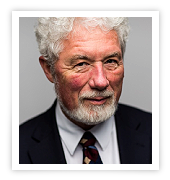
David Fluharty
Associate Professor, School of Marine and Environmental Affairs
PhD, Natural Resource Conservation and Planning
University of Michigan, 1977
David Fluharty studies marine resource management and policy. His research and teaching examines ways to implement ecosystem-based approaches to the management of fisheries, marine protected areas and marine spatial planning. He studies the regional effects of climate change on societies in the Pacific Northwest, and with respect to living marine resource management in the Arctic and elsewhere. In addition, Fluharty has a distinguished record of public service on issues local, national and global. He chaired the Science Advisory Board for the National Oceanic and Atmospheric Administration and served as a member of the North Pacific Fisheries Management Council. He has consulted on projects from West Africa to the Yellow Sea.
Recent Publications
Fluharty, D.L. 2012. “Recent developments at the federal level in ocean policy making in the United States. In Special Issue: National Ocean Policy Making: Practices and Lessons. Coastal Management Journal 40(1):209-221.
Collie, J., W. Adamovicz, M. Beck, B. Craig, T. Essington, D. Fluharty, J. Rice, and J. Sanchirico. 2013. “Marine spatial planning in practice”. Estuarine, Coastal and Shelf Sciences 117: 1-11.
Chang, Y-C., W. Gullett, and D. Fluharty. 2014. “Marine environmental governance networks and approaches: Conference report.” Marine Policy 46(2) 192-196.
Email: fluharty AT uw.edu
Website
Maria Elena Garcia
Associate Professor, Jackson School of International Studies & Comparative History of Ideas
PhD, Anthropology
Brown University, 2001
María Elena García is director of the Comparative History of Ideas and associate professor in the Jackson School of International Studies at the University of Washington. Her first book, Making Indigenous Citizens: Identities, Development, and Multicultural Activism in Peru (Stanford University Press, 2005) examines Indigenous politics and multicultural activism in Peru. Her work on indigeneity and interspecies politics in the Andes has appeared in multiple edited volumes and journals. Her second book project, Cuy Politics, explores the lives and deaths of guinea pigs as one way to think about the cultural politics of contemporary Peru, especially in relation to food, Indigeneity and violence.
Recent Publications
García, María Elena. Forthcoming.”Culinary Fusion and Colonialism: A Critical Look at the Peruvian Food Boom.” ReVista: Harvard Review of Latin America.
García, María Elena and José Antonio Lucero. 2014. “Resurgence and Resistance in Abya Yala: Indigenous Politics from Latin America.” in The Indigenous World of North America, edited by Robert Warrior. New York: Routledge.
Email: meg71 AT uw.edu
Website
Stephen M. Gardiner
Professor, Department of Philosophy
PhD, Philosophy
Cornell University, 1999
Stephen M. Gardiner is Professor of Philosophy and Ben Rabinowitz Endowed Professor of Human Dimensions of the Environment at the University of Washington, Seattle. His main areas of interest are environmental ethics, political philosophy and ethical theory. His research focuses on global environmental problems (especially climate change), future generations, and virtue ethics. Steve is the author of A Perfect Moral Storm: the Ethical Tragedy of Climate Change (Oxford University Press, 2011), the coordinating co-editor of Climate Ethics: Essential Readings (Oxford, 2010), and the editor of Virtue Ethics: Old and New (Cornell University Press, 2005). His articles have appeared in journals such as Ethics, the Journal of Political Philosophy, Oxford Studies in Ancient Philosophy, and Philosophy and Public Affairs.
Recent Publications
Gardiner, Stephen M. and David Weisbach. Forthcoming. Debating Climate Ethics. Oxford: Oxford University Press.
Gardiner, Stephen M. and Allen Thompson, eds. Forthcoming. Oxford Handbook of Environmental Ethics. Oxford: Oxford University Press.
Gardiner, Stephen M. 2011. A Perfect Moral Storm: the Ethical Tragedy of Climate Change. Oxford: Oxford University Press.
Email: smgard AT uw.edu
Website
Benjamin Gardner
Associate Professor, School of Interdisciplinary Arts and Sciences, University of Washington Bothell
PhD, Geography
University of California, Berkeley, 2007
Benjamin Gardner is a geographer, associate professor in the School of Interdisciplinary Arts and Sciences at the University of Washington Bothell, and the chair of the African Studies Program at the Jackson School for International Studies at the University of Washington Seattle. He has published on the implications of tourism development in East Africa, global land grabbing and transnational social movements. His work examines the implications of international development on struggles over access to and control of natural resources.
Recent Publications
Gardner, Benjamin. 2008. “Telling Nala’s Story: Transnational biography and politics in a Maasai community in Tanzania.” in Telling Young Lives: Portraits in Global Youth, edited by Craig Jeffrey and Jane Dyson. Philadephia: Temple University Press.
Gardner, Benjamin et al. 2008. “Community-Based Conservation and Maasai Livelihoods in Tanzania.” in Changing Landscapes in Maasailand: Land Use, Livelihoods, and Community Conservation, edited by Katherine Homewood et al. London: Springer Press.
Email: gardnerb AT uw.edu
Website
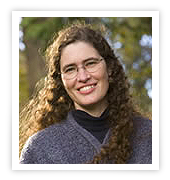
Martha Groom
Professor, School of Interdisciplinary Arts and Sciences, University of Washington Bothell
Professor, Department of Biology, University of Washington Seattle
PhD, Zoology
University of Washington, 1995
Martha Groom is a Professor of Environmental Studies at the University of Washington Bothell & Seattle, based in Seattle, USA. She earned a Dual B.A. in Biology and Public Policy from Princeton University, an MS in Zoology and Tropical Conservation and Development from the University of Florida, and a PhD in Zoology from the University of Washington. She is the lead editor and author of Principles of Conservation Biology, 2006, using the text to highlight case studies of conservation practice. Her research focuses on the intersections of biodiversity conservation and sustainable development, and on effective teaching practice. Currently, she is a section editor for the new journal Case Studies in the Environment. She also is a leader of the Doris Duke Conservation Scholars Program at the University of Washington, a summer intensive program for undergraduates aimed at building truly inclusive conservation practice.
Recent Publications
Tewksbury, Joshua et al. 2014. “Natural history’s place in science and society.” BioScience 64(4): 300-310.
Savilaakso, Sini et al. 2014. “Systematic review of effects on biodiversity from oil palm production.” Environmental Evidence 3(1): 1.
Email: groom AT uw.edu
Personal Website

Himanshu Grover
Assistant Professor, Department of Urban Planning and Design
PhD, Urban and Regional Sciences
Texas A&M University
Himanshu Grover’s research focus is at the intersection of land use planning, community resilience, and climate change. Dr. Grover, is also the co-Director of the Institute for Hazard Mitigation and Planning at the College of Built Environments. Dr. Grover received his PhD in Urban and Regional Sciences from Texas A&M University. In his research, Dr. Grover examines inter-linkages between physical development, socio-economic concerns, and the natural environment. His research is primarily focused on planning for development of safe, equitable, and sustainable communities. Dr. Grover is broadly interested in climate change management (both mitigation and adaptation strategies), environmental and land use planning, social equity, urban infrastructure management, hazard mitigation, and community resilience. His research emphasizes place-based planning policies to balance economic, environmental and social priorities to achieve equitable development and enhance community resilience.
Recent Publications
Grover, H., Brody, S.D., and Vedlitz, A. (In Press) Identifying factors shaping the perceptions of risk related to climate change in U.S. International Journal of Global Warming.
Masterson, J. H., Peacock, W. G., Van Zandt, S. S., Grover, H., Schwarz, L. F., & Cooper Jr, J. T. 2015. Planning for Community Resilience: A Handbook for Reducing Vulnerability to Disasters.
Grover, H., Tang, Z., Zhao, N. 2012. “Incorporating Climate Change Mitigation and Adaptation Into Local Land Use Planning,” In Land Use: Planning, Regulations, and Environment. Hauppauge, New York: NOVA Science Publisher, p. 101-124.
Email: groverh AT uw.edu
Website

Stevan Harrell
Professor, School of Environmental and Forest Sciences
PhD, Anthropology
Stanford University, 1974
Stevan Harrell is an environmental anthropologist, working mostly in China and Taiwan, who has taught at UW since 1974. His current research examines the relationship between people and forests, as well as the documentation and preservation of local ecological knowledge. In the past, he has examined individual differences in folk religion, along with family, kinship, demography, and political economy. He has served as director of the UW Honors Program and as Curator of Asian Ethnology at the Burke Museum of Natural History and Culture. He is also very interested in environmental sustainability and community development through education. He was instrumental in establishing the Yangjuan Primary School in the Liangshan mountains of Sichuan and the Cool Mountain Education Fund, a small NGO that gives scholarships to graduates of the Yangjuan School.
Recent Publications
Urgenson, Lauren S., Amanda Schmidt, Julie K. Combs, Stevan Harrell, Thomas Hinckley, Qingxia Yang, Ziyu Ma, Li Yongxian, Lü Hongliang, Andrew MacIver. 2014. “Traditional Livelihoods, Conservation and Meadow Ecology in Jiuzhaigou National Park, Sichuan, China.” Human Ecology 42: 481-491.
Robbins, Alicia S. T. and Stevan Harrell. 2014. “Paradoxes and Challenges for China’s Forests in the Reform Era.” China Quarterly 218: 381-403.
Harrell, Stevan, Yang Qingxia, Sara Jo Viraldo, R. Keala Hagmann, Thomas Hinckley, and Amanda H. Schmidt. “Forest is Forest and Meadows are Meadows: Cultural Landscapes and Bureaucratic Landscapes in Jiuzhaigou County, Sichuan.” Archiv Orientální 84,1. (Forthcoming 2016 or 2017)
Email: stevanhar AT uw.edu
Website
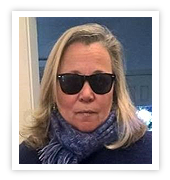
Christine Ingebritsen
Professor, Department of Scandinavian Studies
PhD, Government
Cornell University, 1993
Christine Ingebritsen is Professor of Scandinavian Studies, Director of the Center for West European Studies and Chair of the Hellenic Studies Program. Her work seeks to explain how and why Scandinavian governments (Denmark, Sweden, Norway, Finland and Iceland) have responded differently to contemporary challenges. Collectively, Scandinavia seeks to export best practices to international institutions and acts as a “norm entrepreneur” in several important issue-areas (the environment, human rights and security). Her current project, “Ecological Institutionalism: The Greening of Global Capitalism” explores the integration of ecology with studies of productivity and profit.
Recent Publications
Ingebritsen, Christine. 2013. The Scandinavian Way and Its Legacy in Europe. Austin: Sentia Publishing.
Ingebritsen, Christine, Iver Neumann, Sieglinde Gstohl, and Jessica Beyer, eds. 2006. Small States in International Relations. Seattle: University of Washington.
Email: ingie AT u.washington.edu
Website
Shalini Sarin Jain
Assistant Professor of Management, Milgard School of Business, University of Washington, Tacoma
PhD, Public Policy and Management
University of Washington, 2013
Shalini currently has three inter-related streams of research examining various facets of corporate social and environmental responsibility. The first focuses on measuring corporate social performance including signaling, organizational change, and reporting in the specific context of India. The second examines the trajectory of voluntary private regulation in emerging economies. The third investigates consumer attitudes towards CSR.
Email: ssj8 AT uw.edu
Website
Lucy Jarosz
Professor, Department of Geography
PhD, Geography
University of California, Berkeley, 1990
Lucy Jarosz is Professor and Chair of Geography. Her research and teaching center upon questions of hunger, the political economy/ecology of agriculture and questions of food sovereignty and food security policy. Her work has been published in geography journals and in interdisciplinary, international social science journals and has been funded by the U.S. Department of Agriculture, the National Science Foundation, the Government of Canada, and the University of Washington.
Recent Publications
Jarosz, Lucy. 2014. “Comparing food security and food sovereignty discourses.” Dialogues in Human Geography 4(2):168-181.
Jarosz, Lucy. 2012. “Growing inequality: agricultural revolutions and the political ecology of rural development.” International Journal of Agricultural Sustainability 10(2): 192-199.
Email: jarosz AT uw.edu
Website
Sunila S. Kale
Associate Professor, Jackson School of International Studies
PhD, Government
University of Texas, Austin, 2007
Sunila S. Kale is Associate Professor in the Jackson School of International Studies and the Director of the South Asia Studies Center. Her first book, Electrifying India (Stanford University Press, 2014) examines the politics of electrification in India from independence to the early 2000s, and was awarded the 2013 Joseph W. Elder Prize in the Indian Social Sciences by the American Institute of Indian Studies. Her current research focuses on the politics and governance of industrial development in the eastern India, where natural resource development has produced sustained conflicts between activists, industrialists, and the state. She has edited a special issue of the journal India Review, and has published several other journal articles on her research.
Recent Publications
Kale, Sunila S. Forthcoming. “Structures of power: Electricity in colonial India.” Comparative Studies of South Asia,
Africa and the Middle East 34(3).
Kale, Sunila S. and Nimah Mazahari. Forthcoming. “Natural resources, development strategies, and lower caste empowerment along India’s mineral belt.” Studies in Comparative International Development.
Email: kale AT uw.edu
Website

Ryan Kelly
Associate Professor, School of Marine and Environmental Affairs
PhD, Ecology, Evolution, and Environmental Biology
Columbia University, 2006
Trained as both an ecologist and a lawyer, Ryan Kelly has a broad set of interests, focused both on hard scientific data and policymakers’ use of those data. From the science side, he studies the interplay between geography, ecology, and genetics in marine species. His more applied research joins genetic and ecological research with real-world implementation in law and policy, particularly with respect to environmental monitoring, resource management, endangered species, and ocean acidification. In general, he is drawn to projects that have significant elements of both scientific and policy relevance as we work towards more sustainable use of marine resources.
Recent Publications
Hillier A, Kelly RP, Klinger T. 2016 . “Narrative Style Influences Citation Frequency” in Climate Change Science. PLOS One 11(12): e0167983.
Kelly, R.P. 2016. “Making Environmental DNA Count.” Molecular Ecology Resources 16: 10-12.
Lowell, N. and R.P. Kelly. 2016. “Evaluating Agency Use of “Best Available Science” Under the United States Endangered Species Act.” Biological Conservation 196:53-59.
Email: rpkelly AT uw.edu
Website
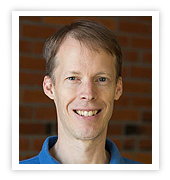
Tom Koontz
Associate Professor, School of Interdisciplinary Arts and Sciences Division of Science and Mathematics
University of Washington Tacoma
PhD, Public Policy, Indiana University Bloomington, 1997
Tom Koontz is Associate Professor of Environmental Studies at the University of Washington Tacoma. He has written extensively on collaborative environmental governance, especially watershed management, both in U.S. states and in Germany in the context of the European Union Water Framework Directive. Tom has served as Associate Editor for the Journal of Forestry and Society & Natural Resources, and on the editorial board of Policy Studies Journal and the Journal of Public Administration Research and Theory. He is currently collaborating on two book projects: one on the challenges of collaboration and the other on governing complexity through polycentricity. His current research with students examines the use of science and plan implementation in regional watersheds including the Puget Sound.
Recent Publications
Koontz, Tomas M., Divya Gupta, Pranietha Mudliar, and Pranay Ranjan. 2015. “Adaptive Institutions in Social-Ecological Systems Governance: A Synthesis Framework.” Environmental Science and Policy 53: 139-15.
Koontz, Tomas M., and Jens Newig. 2014. “From Planning to Implementation: Top Down and Bottom Up Approaches for Collaborative Watershed Management.” Policy Studies Journal 42(3): 416-442.
Email: koontz31 AT uw.edu
Website

Sabine Lang
Associate Professor, Henry M. Jackson School of International Studies
PhD, Political Science
Sabine Lang is Associate Professor of European and International Studies at the Henry M. Jackson School of International Studies. She is Adjunct Professor in Political Science and the Department of Women, Gender, and Sexuality Studies. Professor Lang also serves as the Book Review Editor of Politics and Gender. Her major projects focus on: (1)Digital Media and the Organization of Transnational Advocacy Networks in the European Union, (2) Women’s National and Transnational Advocacy in the European Union, (2) Methods of Analyzing Transnational and Digital Advocacy, (4) Institutionalization and De-institutionalization of Gender Equality Policies in the European Union, and (5) Gender, Federalism, and Multilevel Governance.
Recent Publications
Lang, Sabine. 2013. NGOs, Civil Society, and the Public Sphere. New York: Cambridge University Press.
Lang, Sabine and Birgit Sauer. “Does Federalism Impact Gender Architectures? The Case of Women’s Policy Agencies in Germany and Austria.” Publius 4(1): 68-89.
Email: salang AT u.washington.edu
Website
Karen Litfin
Associate Professor, Department of Political Science
PhD, Political Science
University of California, Los Angeles, 1992
Karen Litfin (Ph.D., University of California, Los Angeles) is an associate professor in the Department of Political Science. She specializes in global environmental politics, with core interests in green theory, the science/policy interface, and what she calls “person/planet politics.” She directs the UW Auroville Program on Sustainability, Community and International Cooperation, which has been bringing students to an international township in south India since 2001.
Recent Publications
Karen T. Litfin. 2013. Ecovillages: Lessons for Sustainable Community. Cambridge: Polity.
Litfin, Karen T. 2011. “Thinking like a planet: Gaian politics and the transformation of the world food system.” in International Handbook of Environmental Politics, edited by Peter Dauvergne. Northampton: Edward Elgar.
Litfin, Karen T. 2010. “The Sacred and the Profane in the Ecological Politics of Sacrifice.” in The Environmental Politics of Sacrifice, edited by Michael Maniates and John Meyer. Cambridge, Massachusetts: MIT Press.
Email: litfin AT uw.edu
Website
Jose Antonio Lucero
Associate Professor, Jackson School of International Studies
PhD, Politics
Princeton University, 2002
José Antonio Lucero is Hanauer Honors Professor and Chair of Latin American and Caribbean Studies in the Jackson School of International Studies. His main research and teaching interests include Indigenous politics, social movements, Latin American politics, and borderlands. He has conducted field research in Bolivia, Chile, Ecuador, Mexico, and Peru. In addition to numerous articles, Lucero is the author of Struggles of Voice: The Politics of Indigenous Representation in the Andes (University of Pittsburgh Press, 2008) and the co-editor of the Oxford Handbook of Indigenous Peoples Politics (Oxford University Press, forthcoming). He is currently working on two research projects that examine the cultural politics of (1) conflicts between Indigenous peoples and the agents of extractive industry in Peru and (2) human rights activism, religion, and Indigenous politics on the Tohono-O’odham/Mexico/US border.
Recent Publications
Van Cott, Donna Lee, José Antonio Lucero, and Dale Turner, eds. Forthcoming. Oxford Handbook on Indigenous Politics. Oxford: Oxford University Press.
Lucero, José Antonio. 2013. “Ambivalent Multiculturalisms: Perversity, Futility and Jeopardy in Latin America.” in Paradigms and Paradoxes of Multiculturalism, edited by Todd Eisenstadt. Oxford: Oxford University Press.
Email: jal26 AT u.washington.edu
Website
Peter May
Professor Emeritus, Department of Political Science
PhD, Public Policy
University of California, Berkeley 1979
Peter J. May recently retired as the Donald R. Matthews Distinguished Professor of American Politics. His research funded by the National Science Foundation, the Environmental Protection Agency, and the United States Geological Survey addresses policy processes, environmental regulation, and policymaking for natural hazards and disasters. His research about policy processes places him among the leading scholars in the field for which he has pioneered research addressing policy design and implementation, the coherence of policies, policy learning, and policy regimes. May has authored or co-authored four books and published extensively in leading journals in public policy and public administration. He regularly serves as an advisor to governmental agencies that include service on panels for the National Research Council and the National Science Foundation.
Recent Publications
May, Peter J. Forthcoming. “Political Limits to the Processing of Policy Problems.” Politics and Governance 1(2): 104-116.
May, Peter J. and Ashley E. Jochim. 2013. “Policy Regime Perspectives: Policies, Politics, and Governing.” Policy Studies Journal 41(3): 426-452.
May, Peter J. 2011. “Constructing Homeland Security: An Anemic Regime.” Policy Studies Journal 39(2): 285-307.
Email: pmay AT u.washington.edu
Website
William McGuire
Assistant Professor of Economics, Division of Politics, Philosophy & Public Affairs, University of Washington Tacoma
PhD, Agricultural, Environmental and Development Economics
Ohio State University, 2012
William McGuire is an Assistant Professor of Economics in the School of Interdisciplinary Arts and Sciences at the University of Washington Tacoma. He currently has two active lines of research related to environmental governance. One focuses on the role of voluntary industry standards in the private provision of environmental and other credence goods. The other focuses on how social norms influence the public’s valuation of environmental amenities, and the implications of these norms for environmental policy.
Recent Publications
Holtkamp, Nick, Peng Liu, and William McGuire. 2014. “Regional Patterns of Food Safety in China: What Can We Learn from Media Data?” China Economic Review 30: 459-468.
McGuire, William. 2014. “The Effect of ISO 14001 on Environmental Regulatory Compliance in China.” Ecological Economics 105: 254-264.
Email: wmcguire AT u.washington.edu
Website
Victor Menaldo
Associate Professor, Department of Political Science
PhD, Political Science
Stanford University, 2009
Victor Menaldo is an assistant professor of Political Science at UW and an affiliated faculty of the Center for Statistics and the Social Sciences (CSSS). He specializes in comparative politics and political economy. Menaldo’s research focuses on the political economy of taxation and redistribution, the political economy of regulation, the political economy of regime change, and the political economy of natural resources. He has published in the American Political Science Review, the Journal of Politics, the British Journal of Political Science, Comparative Political Studies, Comparative Politics and Economics & Politics, among other places.
Recent Publications
Albertus, Michael and Victor Menaldo. Forthcoming. “Dealing with Dictators: Negotiated Democratization and the Fate of Outgoing Autocrats.” International Studies Quarterly.
Haber, Stephen and Victor Menaldo. 2011. “Do Natural Resources Fuel Authoritarianism? A Reappraisal of the Resource Curse.” American Political Science Review 105(1): 1-26.
Email: vmenaldo AT uw.edu
Website
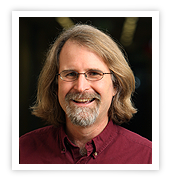
David R. Montgomery
Professor, Department of Earth & Space Sciences
PhD, Geomorphology
University of California, Berkeley, 1991
David R. Montgomery studies the evolution of topography and the influence of geomorphological processes on ecological systems and human societies. His published work includes studies of the evolution and near-extirpation of salmon, fluvial and hillslope processes in mountain drainage basins, the evolution of mountain ranges (Cascades, Andes, and Himalaya), and the analysis of digital topography. Current research includes field projects in eastern Tibet and the Pacific Northwest of North America.
Recent Publications
Montgomery, D.R. 2017. Growing a Revolution: Bringing Our Soil Back to Life. W.W. Norton & Co.
Montgomery, Montgomery, D.R. and Biklé, A. 2016. The Hidden Half of Nature: The Microbial Roots of Life and Health. W. W. Norton&Co.
Email: bigdirt AT uw.edu
Website
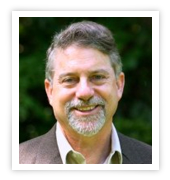
Scott L. Montgomery
Faculty, Jackson School of International Studies
Scott L. Montgomery is a geoscientist, author, and affiliate faculty member in the Henry M. Jackson School of International Studies, University of Washington, Seattle. He has written widely on topics related to energy and sustainability, intellectual history, communication, translation studies, and history of science. His current research is focused in three areas: nuclear power and climate change; the impact of Darwin’s ideas on modernity; and the rise of science in medieval and Renaissance Europe. His book, written with UW colleague Dan Chirot (Jackson School) The Shape of the New: Four Big Ideas and How They Built the Modern World (Princeton) was selected by the New York Times as among the 100 Best Books of 2015.
Recent Publications
Montgomery, Scott L. 2017. Chicago Guide to Communicating Science. University of Chicago Pressé
Montgomery, Scott L. and Thomas Graham Jr. 2017. Seeing the Light: Nuclear Power in the New Century. Cambridge University Press.
Montgomery, Scott L. 2013. Does Science Need a Global Language? English and the Future of Research, University of Chicago Press.
Email: scottlm AT uw.edu
Website
Timothy Nyerges
Professor, Department of Geography
PhD, Geography
Ohio State University, 1980
Timothy Nyerges is Professor of Geography at the University of Washington where he specializes in teaching and research related to participatory geographic information systems (GIS) focusing on sustainability management for land use, transportation, and water resource related issues. Many of the ideas from that research focus on sustainability management appearing in his 2010 textbook titled Regional and Urban GIS: A Decision Support Approach co-authored with Piotr Jankowski and published by Guildford Press. He is the director of the Professional Masters Program in GIS for sustainability management for the University of Washington’s Professional and Continuing Education Division. He is immediate-past president of University Consortium for Geographic Information Science (UCGIS).
Recent Publications
Xu, Jinghai, Timothy Nyerges, and Gaozhong Nie. 2014. “Modeling and representation for earthquake emergency response knowledge: perspective for working with geo-ontology.” International Journal for Geographical Information Science 28(1): 185-205.
Aguirre, Robert and Timothy Nyerges. 2014. “An Agent-Based Model of Participatory Decision Making for Sustainability Management.” Journal of Artificial Societies and Social Simulation 17(1).
Email: nyerges AT u.washington.edu
Website
Aseem Prakash
Founding Director, UW Center for Environmental Politics
Professor, Department of Political Science
PhD, Political Science and School of Public & Environmental Affairs
Indiana University, Bloomington 1997
Aseem Prakash is Professor of Political Science and the Walker Family Professor for the College of Arts and Sciences. He has written extensively on the subject of voluntary environmental politics, policy, and governance. He is the Founding Editor of Cambridge University Press Series on Business and Public Policy, the Co-editor of Journal of Policy Analysis and Management and the Associate Editor of Business & Society. He is the author of Greening the Firm (Cambridge University Press, 2000), and the co-author of The Voluntary Environmentalists (Cambridge University Press, 2006). His work has been funded by the National Science Foundation and he has served on the National Research Council Committee on Risk Management and Governance Issues in Shale Gas Development, and the Environmental Protection Agency’s Subcommittee on Promoting Environmental Stewardship. He has served as a consultant to Greenpeace International.
Recent Publications
Prakash, Aseem and Matthew Potoski. 2016. “The EU Effect: Does Trade with the EU Reduce CO2 Emissions in the Developing World?.” Environmental Politics 26(1): 27-48.
Sandoval, Pavel and Aseem Prakash. 2016. “The Gold Rush: The Popularity of the “Gold” Tier in LEED Certification.” Environmental Policy & Governance 26(6): 543-555.
Berliner, Daniel and Aseem Prakash. 2015. ““Bluewashing” the Firm?: Voluntary Regulations, Program Design and Member Compliance with the United Nations Global Compact” Policy Studies Journal 43(1): 115-138.
Email: aseem AT uw.edu
Website

Joshua L. Reid
Associate Professor, Department of History
PhD, University of California, San Diego
Professor Reid’s research interests include American Indians, identity formation, cultural meanings of space and place, the American and Canadian Wests, the environment, and the indigenous Pacific. He teaches courses on American Indian History, the American West, U.S. History, and Environmental History. Yale University Press recently published his first book, The Sea Is My Country: The Maritime World of the Makahs, in the Henry Roe Cloud Series for American Indians and Modernity. This examines the Makah Nation’s historical relationship with the ocean. He is currently researching a project about indigenous explorers in the Pacific Ocean, specifically focusing on those individuals who voluntarily traveled throughout the Pacific from the late eighteenth through late nineteenth centuries.
Recent Publications
Reid, Joshua. 2015. The Sea Is My Country: The Maritime World of the Makah’s. New Haven: Yale University Press.
Reid, Joshua. 2013. “Indigenous Power in The Comanche Empire.” History and Theory 52(1): 54-59.
Reid, Joshua. 2013. “Articulating a Traditional Future: Makah Sealers and Whalers, 1880-1999,” in Tribal Worlds, eds. Brian Hosmer and Larry Nesper. Albany: State University of New York Press, p.163-184.
Email: jlreid@uw.edu AT uw.edu
Website
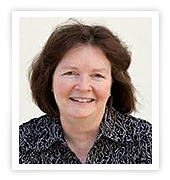
Clare M. Ryan
Professor, School of Environmental and Forest Sciences
College of the Environment
PhD, Natural Resource and Environmental Policy
University of Michigan, 1996
Clare Ryan is a natural resource policy specialist who focuses on the ways that scientific information can be integrated into policy and management decisions. She studies the processes by which environmental policies are made and implemented, ways to foster collaboration in environmental management, and how to address conflicts that can arise when multiple stakeholders participate in decision-making. She holds appointments in the School of Environmental and Forest Sciences, Evans School of Public Policy and Governance, and School of Marine and Environmental Affairs. Before returning to academia, she spent several years as a scientist and manager at both the state and federal level.
Recent Publications
Gibbons, K.H., and Ryan, C.M. 2015. “Characterizing Comprehensiveness of Urban Forest Management Plans in Washington State.” Urban Forestry & Urban Greening 14: 615-624.
Asah, S.T., D.J. Blahna, C.M. Ryan. 2012. “Involving Forest Communities in Identifying and Constructing Ecosystem Services: Millennium Assessment and Place Specificity.” Journal of Forestry April/May 2012: 149-156.
Email: cmryan AT uw.edu
Website

Kristiina Vogt
Professor of Ecosystem Management
School of Environmental and Forest Sciences, College of the Environment
Ph.D., New Mexico State University 1976
Kristiina A. Vogt, born in Turku, Finland, is the founder and co-coordinator of the Forest Systems and Bioenergy program in the College of Forest Resources. Previously, she has served as the Dean of the College of Forest Resources as well as the Margaret K. Musser Professor of Forest Ecology at Yale University. Her interdisciplinary research focuses on developing tools to solve complex problems in conservation, bioenergy and forestry. She has conducted research in Iceland, Malaysia, Mexico, Brazil, Belize, Indonesia and in Alaska and Puerto Rico as well as within the continental US.
Recent Publications
Vogt, Kristiina et al., 2013. The River of Life: Sustainable Practices of Native Americans and Indigenous Peoples. Higher Education Publishers (HEP).
Vogt, Kristiina et al., 2010. Sustainability Unpacked. Food, Energy and Water for Resilient Environments and Societies. Earthscan.
Email: kvogt AT uw.edu
Website

Todd Wildermuth
Director of Environmental Law Program, School of Law
PhD, Natural Resources and Environmental Sciences
University of Illinois, Urbana-Champaign, 2008
Dr. Todd A. Wildermuth is the Director of the UW Environmental Law Program. He is the co-foudner of the UW Regulatory Environmental Law and Policy Clinic that assists organizations and individuals seeking to influence environmental policy through the submission of public comments on major environmental regulations. He coordinates UW Law’s current environmental curricular offerings, works with other faculty to increase UW’s depth and stature in the field, and conducts outreach on behalf of the environmental law program.
Email: toddw2 AT u.washington.edu
Website

Yen-Chu Weng
Lecturer, Environmental Studies Program
PhD, Geography
University of Wisconsin-Madison, 2011
Yen-Chu Weng is a lecturer in Environmental Studies. As a geographer, she has always been interested in exploring the connections between human societies and the environment. She received broad training in both the biophysical sciences and the social sciences, and has integrated quantitative, qualitative, and GIS methods into her research projects. Her research focuses on the politics of participation in environmental volunteering programs. By comparing perspectives of multiple stakeholders, she examines the role of science, nature, and participation in ecological restoration. Her past work includes spatial analysis of landscape patterns and urban ecology. Her current research focuses on environmental education and case study pedagogy.
Recent Publications
Deaton, M. L., C. A. Wei, C. A., and Y.-C. Weng. 2016. “Concept Mapping: A Technique for Teaching about Systems and Complex Problems.” National Socio-Environmental Synthesis Center Case Study Teaching Resources.
Weng, Y.-C. 2015. “Contrasting Visions of Science in Ecological Restoration: Expert-lay Dynamics between Professional Practitioners and Volunteers”, Geoforum. 65: 134-145.
Weng, Y.-C. 2007. “Spatiotemporal Changes of Landscape Pattern in Response to Urbanization”, Landscape and Urban Planning. 81 (4): 341-353.
Email: yweng AT uw.edu
Website
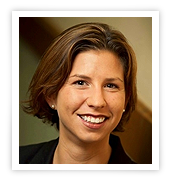
Megan Ybarra
Assistant Professor, Department of Geography
PhD, Environmental Science, Policy & Management
University of California, Berkeley, 2010
Megan Ybarra is Assistant Professor of Geography at the University of Washington. Her research and teaching center on questions of identity in relation to place, the political ecology of land tenure in protected areas, and indigenous territorial autonomy. Her work has been published in geography and interdisciplinary social science journals, and she has also published policy-oriented monographs in Guatemala.
Recent Publications
Ybarra, Megan. 2012. “Taming the Jungle, Saving the Maya Forest: Sedimented Counterinsurgency Practices in Contemporary Guatemalan Conservation.” Journal of Peasant Studies 39 (2):479-502.
Ybarra, Megan, Oscar Obando Samos, Liza Grandia, and Norman B Schwartz. 2012. Tierra, Migración y Vida en Petén, 1999-2009. Guatemala City: CONGCOOP-IDEAR.
Email: mybarra AT uw.edu
Website


